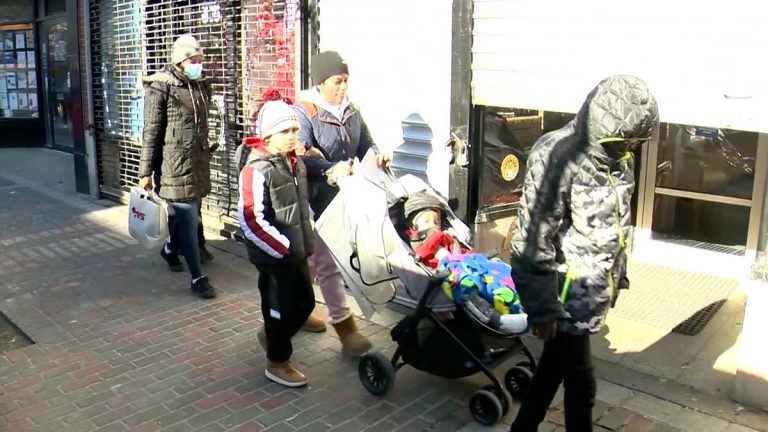OTR: Predicting the future of the emergency shelter crisis in Massachusetts
We're recorded this morning with David Shapiro and Danielle Ferrer. You know, we often talk about immigrants as a group. But these are individual people and their families have their own stories. What are some of the stories people hear? Who are these people? Yeah, I think, you know, when we stayed in Wang at the Wang YMCA in Chinatown, because we were two blocks down the street from the transportation department, which was the first overnight shelter, where people would sleep in conference rooms. They had to go somewhere. So, yeah, it was my first kind of first temporary situation. So, at 7:00, when the people who worked there came and were out for the day, they came to Wang and spent the day in Wang. And I think what was really comforting as you talked to people was that they had everything they owned in a suitcase, and they didn't have strollers for their kids. They needed towels for bathing, like the basic needs of not thinking about where you are going, but knowing that you need to risk everything to go to another life. I think that's been kind of my experience of just seeing them come to us and have a place where they can put their stuff and kind of, and know that their kids are going to be entertained as well. Danielle, are there any stories that stick out in your mind? Yes, I think the stories that stuck with me, from what we saw when we got home was that we saw families arriving in shorts and boots with nothing, in fact not even a suitcase in the middle of winter. In the middle of winter, in the middle of the night. right. And what we're really talking about is that their families are right, and they're fleeing for safety reasons. And they are people who want to be here in the United States in order to truly embrace the American dream. Well, to work in this country to build a family in this country and to build a life in this country. And this is what we see. And let's just use the background that we're in now. I mean, this isn't just an election year. This is a presidential election year. A type of policy that makes navigation more difficult. I think they do. I think it's because of politics, a lot of times it's about scoring points in the news cycle and so on. It is a complex and intersectional issue. If you make one person think about another even in the name we have given to this crisis, the migrant crisis, the crisis. It feels like a crisis. I would say they are in crisis, and that is why they fled their country and came to us. We have an affordable housing crisis and an immigration regulation crisis. That's why this happened. But they are not the people and they are not the crisis. So, to score, yes, people will criticize and they will complain and they will disagree, do you see this slowing down at all in the next few months or just continuing at a very steady pace? I think it's a great question. I think, you know, to the point I made earlier, it really depends on what's happening in other countries, right? In many ways, and if our government at the federal level, you know, looks at different policy changes, in the meantime, I think we expect it to continue because people are fleeing, you know, for people who watched the news a week later, if anyone saw what happened In Haiti, families would flee, wouldn't they? They are just trying to be safe and for their children to be safe. So I don't know that we expect to see it slow down. I think one of the great things about our governor and his lieutenant governor and his team is that they've really focused on being public servants on this and not getting into the political nature, but really focusing on who the commonwealth is and what our valuable property is, and what's the right thing to do for the kids. Six months does not solve the problem. I don't try to avoid crises or problems. Six months does not solve the problem. But what do you see happening in six months? Danielle, so I think what we've seen is our management. We've seen the evolution of crisis resolution as best one can go into a humanitarian crisis, you know, have a solution to the humanitarian crisis. And I think what we'll see is that will continue to evolve as policies evolve, as we work through the budget season, as different agencies like ours look to come up with solutions and partner to help home residents, shelter them, et cetera. Because the numbers will continue. They won't leave. I don't see a reason why the underlying problems or people coming to us should stop. there is no reason. Thank you both for being here this morning. Thanks to eBay
The CEOs of the YMCA of Greater Boston and Heading Home discuss what things will be like 6 months from now.
The CEOs of the YMCA of Greater Boston and Heading Home discuss what things will be like 6 months from now.


